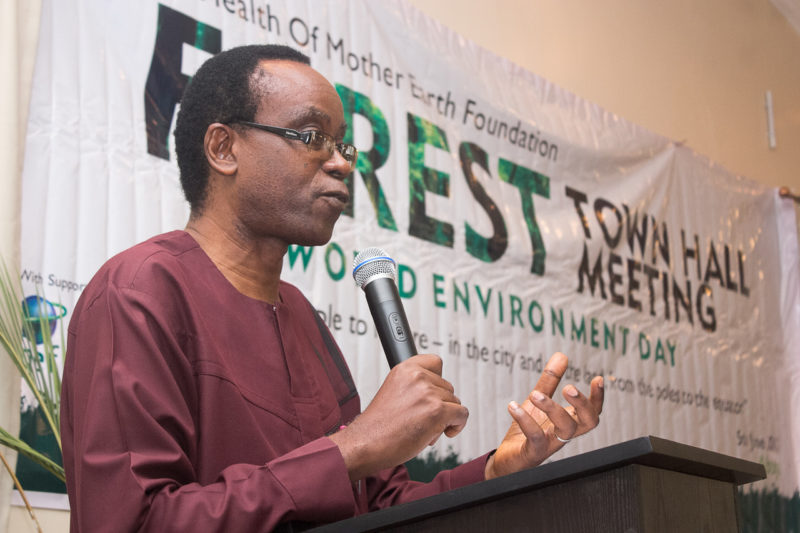Oil industry activities are threatening the livelihood of over 6.5 million people engaged in fishing-related activities in the Niger Delta, according to an environmentalist, Nnimmo Bassey.

Bassey said this at a conference with the theme: “Key Indices for Visionary Leadership, Good Governance and Sustainable Development in Bayelsa State” on Thursday, July 12, 2018 in Yenagoa, the state capital.
The conference was organised by G24 Embasara Foundation, a pan-Ijaw group committed to new leadership and governance initiative in Bayelsa and Ijaw land.
Delivering a paper on theme, the environmentalist said the debilitating impact of oil and gas exploration and production had distorted the biodiversity of the region.
He noted that the environment of the region had suffered adverse degradation due to the weakness of regulatory institutions among other factors.
Bassey stressed the need for the re-ordering of priorities and the adoption of new approaches to environmental sustainability by the political leadership.
“Oil production depletes environmental resources. For every barrel of oil, there is over 13 barrels of toxic effluents that come from the oil wells and nobody gives account of these wastes, which the oil firms discharge into the environment.
“How has the 13 per cent derivation accruing to the oil-producing states been utilised? What we see is that the resources are used to develop the urban centres, while the rural areas are left behind to wallow in abject poverty.
“The attitude of our leaders in the Niger Delta region has made the environmental component of the Petroleum Industry Bill to be at the background, rather than in the forefront.
“We have about 6.5 million people involved in fishing-related activities threatened by the oil industry, which employs some 5,000 people.
“Our leaders should think of the jobs of the majority and channel resources to developing renewable energy.”
According to him, there is no future for fossil fuels since the world has developed cars that run without oil.
Bassey, therefore, urged the Niger Delta people to change their attitude and refrain from pipeline vandalism, oil theft and illegal oil refining which further pollute and degrade their environment.
In their comments, some stakeholders at the conference expressed concern over poor leadership by public office holders in the state over the years.
They underscored the need for a review of the process of appointment into leadership positions to make public office holders answerable and accountable to the people.
In a remark, a former state Commissioner for Environment, Mr. Iniruo Wills, called for the development of an Ijaw nation code of ethics, leadership and governance which prospective political office holders must subscribe to.
Wills also advocated for building leadership capacity to prepare Ijaw people for leadership positions.
In his remark, the Chairman of the occasion, Amba Ambaiowei, said that members of the group were worried about the under-development in Ijawland, noting that the people lacked basic amenities.
He described the G24 Embasara Foundation as non-partisan, adding that the group was determined to ensure that persons who had shown poor leadership qualities were imposed on the people.
Ambaiowei, a former Commissioner for Education and Labour in the old Rivers State, said the group would scrutinise the competences of Ijaw people seeking public offices.
By Nathan Nwakamma
